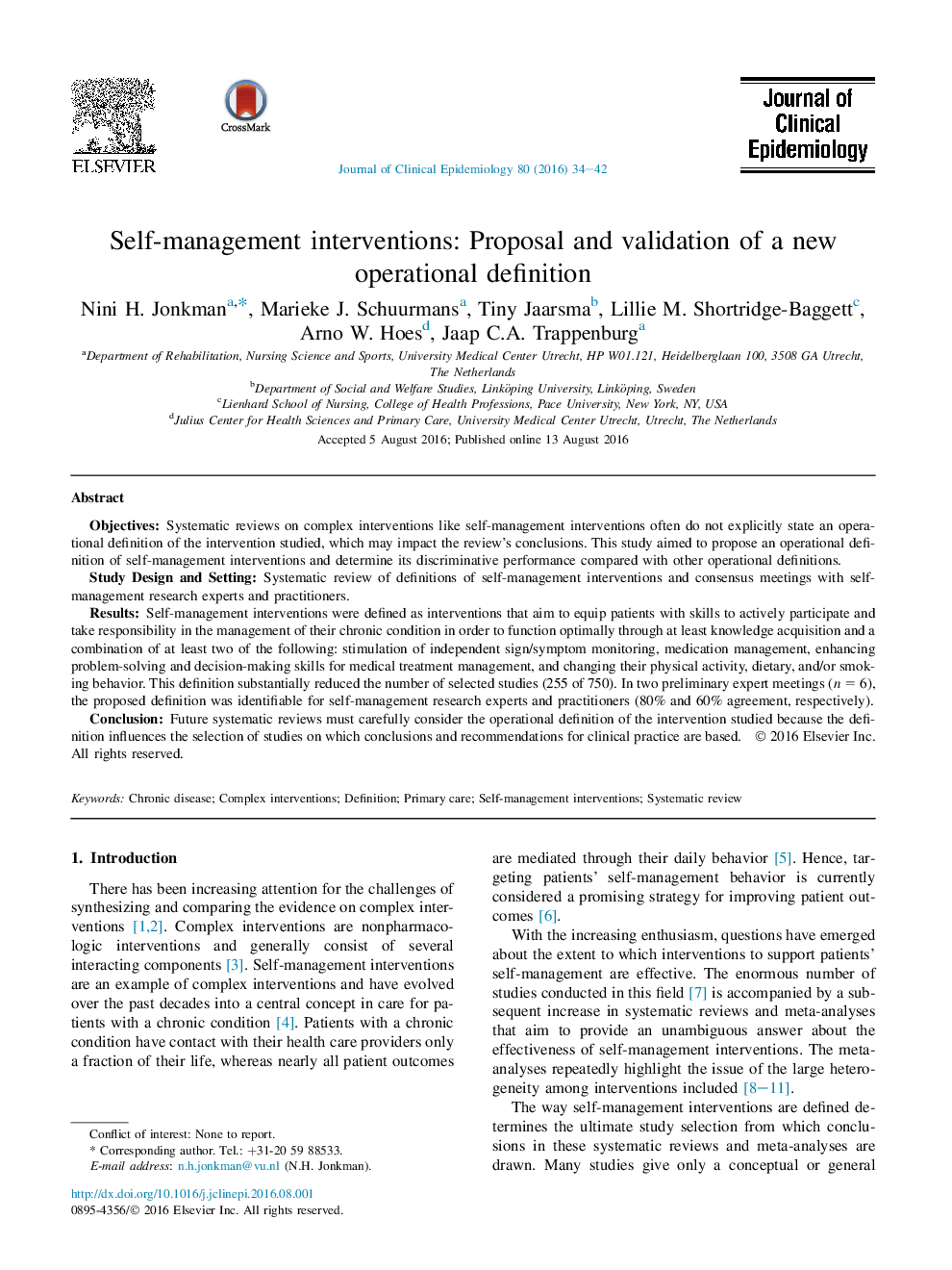| Article ID | Journal | Published Year | Pages | File Type |
|---|---|---|---|---|
| 5121959 | Journal of Clinical Epidemiology | 2016 | 9 Pages |
ObjectivesSystematic reviews on complex interventions like self-management interventions often do not explicitly state an operational definition of the intervention studied, which may impact the review's conclusions. This study aimed to propose an operational definition of self-management interventions and determine its discriminative performance compared with other operational definitions.Study Design and SettingSystematic review of definitions of self-management interventions and consensus meetings with self-management research experts and practitioners.ResultsSelf-management interventions were defined as interventions that aim to equip patients with skills to actively participate and take responsibility in the management of their chronic condition in order to function optimally through at least knowledge acquisition and a combination of at least two of the following: stimulation of independent sign/symptom monitoring, medication management, enhancing problem-solving and decision-making skills for medical treatment management, and changing their physical activity, dietary, and/or smoking behavior. This definition substantially reduced the number of selected studies (255 of 750). In two preliminary expert meetings (n = 6), the proposed definition was identifiable for self-management research experts and practitioners (80% and 60% agreement, respectively).ConclusionFuture systematic reviews must carefully consider the operational definition of the intervention studied because the definition influences the selection of studies on which conclusions and recommendations for clinical practice are based.
